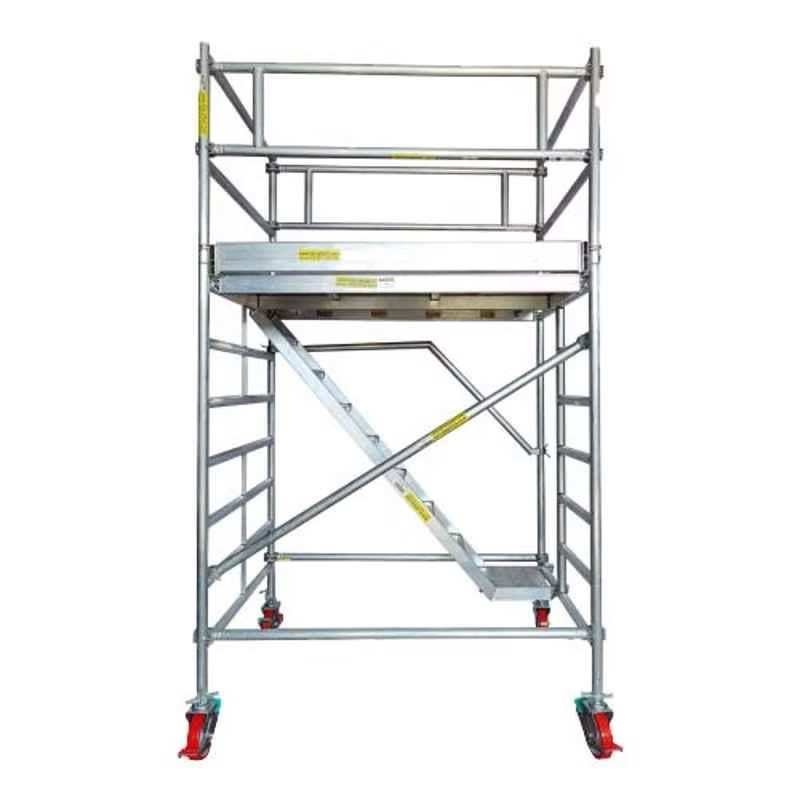When Do You Need Scaffolding for Home Renovation Projects?
- Nabiha A.
- May 19, 2025
- 3 min read
Index
Introduction
If you're planning a home makeover in Malaysia, it's important to know when scaffolding becomes a must-have. Whether it's to stay compliant with safety laws or to make your project easier and faster, scaffolding can play a big role in renovations.
What is Scaffolding? 🏛️
Scaffolding is a temporary structure used to support workers and materials during construction, maintenance, or repair. It's often made of metal pipes and wooden planks, providing a stable platform for tasks that are out of reach from the ground.
Main purposes of scaffolding include:
Ensuring worker safety at heights
Providing a secure platform for tools and materials
Improving access to hard-to-reach areas
Common Home Renovation Projects That Require Scaffolding 🏡
You don't always need scaffolding, but certain home renovation tasks almost always require it. Here are some examples:
1. Roof Repairs or Replacement
Working on a sloped surface at height is dangerous without proper support. Scaffolding ensures roofers stay safe and productive.
2. Repainting or Replastering Upper Floors
Painting or applying plaster to upper stories often requires extended reach, making scaffolding a safer option than ladders.
3. Gutter Replacement or Maintenance
Accessing gutters on a double-storey home without scaffolding can be risky. A scaffold gives stability and room to move.
4. Window Replacement (Upper Levels)
Large or heavy window units being replaced upstairs? Scaffolding can help ensure safety and ease of installation.
5. Solar Panel Installation
Mounting solar panels on roofs often requires multiple workers moving heavy equipment—scaffolding makes this safer and more efficient.
When is Scaffolding Not Necessary? ❌
Scaffolding isn't always required. Here are some situations where you can skip it:
Interior work at low heights: Wall painting, furniture installation, or tiling usually don’t need scaffolding.
Single-storey exterior tasks: Gardening, patio work, or light painting near the ground are scaffold-free jobs.
Short-duration repairs: Quick fixes like minor patch-ups or inspections can be done with ladders or mobile platforms.
Just remember, when in doubt—especially for jobs above 2 meters—it's safer to opt for scaffolding.
How to Choose the Right Scaffolding Type ⚖️
Choosing the correct scaffolding is key to both safety and efficiency. Different projects require different setups:
1. Mobile Scaffolds
Perfect for painting or maintenance on flat surfaces. These have wheels and can be easily moved around.
2. Fixed Scaffolds
Great for longer-term work in one area, such as renovations involving roofs or upper walls.
3. Suspended Scaffolds
Used for very high areas, usually in commercial buildings, but may be required in high-rise homes.
4. Cantilever Scaffolds
Ideal for places where ground support is limited, such as above porches or extensions.
Pro Tip: Consult a professional to assess your project and recommend the safest option.
Safety & Legal Considerations in Malaysia 🔒
In Malaysia, the Department of Occupational Safety and Health (DOSH) regulates the use of scaffolding. According to OSHA 1994 and FMA 1967, contractors must ensure:
Proper assembly by certified personnel
Load limits are followed
Regular inspections are conducted
Fall protection is in place (like guardrails and toe boards)
Tip: Homeowners hiring contractors should verify that scaffolding practices follow these guidelines. It’s about safety and avoiding potential legal issues.
More info: Visit DOSH Malaysia for detailed regulations.
Did You Know?
In Malaysia, any scaffolding over 4 meters high must be erected by a certified scaffolder. If not done correctly, both homeowners and contractors can face fines or delays.
Conclusion
Scaffolding isn’t just for skyscrapers—it’s often essential for safer, smoother home renovations. If your renovation involves heights or heavy materials, it’s better to scaffold up and avoid regrets.
FAQs
1. Do I need scaffolding for painting a two-storey house?
Yes, especially for upper levels. It’s safer and allows better access than ladders.
2. Can I build my own scaffolding?
Not recommended. In Malaysia, scaffolds over 4m must be erected by certified personnel to comply with safety laws.
3. Is scaffolding expensive to rent?
Costs vary by size and duration. On average, expect to pay RM500–RM1,500 for small residential projects.
4. What’s the penalty for unsafe scaffolding in Malaysia?
DOSH can impose fines, issue stop-work orders, or pursue legal action for violations.
5. How long can I keep scaffolding at my home?
As long as your project requires it, provided inspections are done regularly and safety is maintained.
Looking to renovate safely and efficiently? 🏠✨
Let our team help you with certified scaffolding services for your next home project. Contact us now at www.scaffold.my/!



















Comments